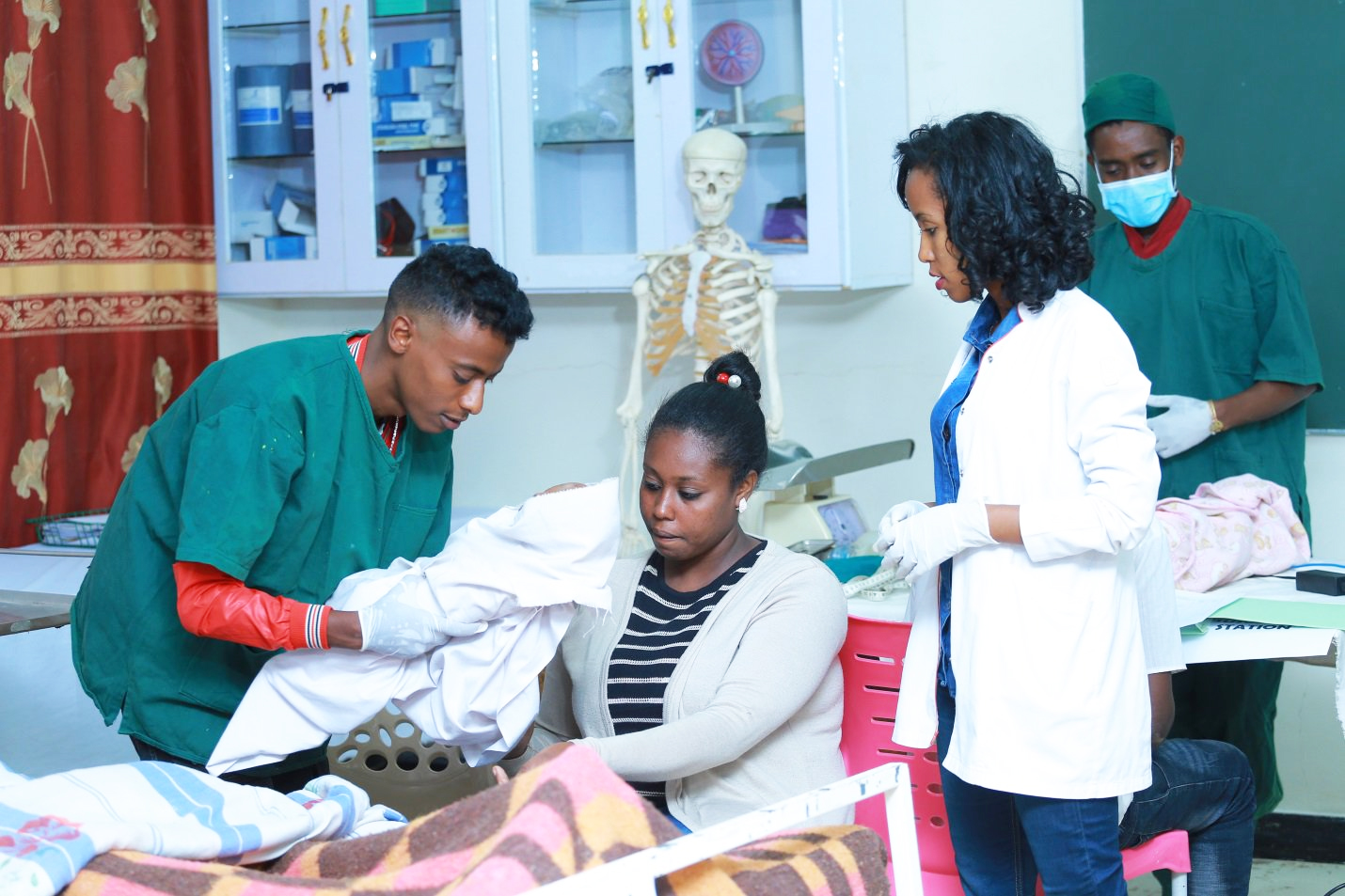
The United States Agency for International Development (USAID), over the past few years, has been assisting the Ethiopian Government’s development programs in numerous activities.
For instance, it has been offering support in the areas of agriculture, health, education, relief and rehabilitation, public safety and community development, social welfare and housing, among others.
Last week, the Agency has marked the completion of its seven-year project – ‘Strengthening Human Resources for Health’ – aimed to improve the quality of healthcare services in Ethiopia through offering skill upgrading trainings for health workers.
Under the seven-year USAID’s ‘Strengthening Human Resources for Health’ project, nearly 50,000 medical and health sciences students, including physicians, midwives, anesthetists, health extension workers, emergency medical technicians, and biomedical technicians, drawn from over 90 public and private educational institutions, have received improved curriculum and practical training opportunities
As part of the U.S.-Ethiopia joint efforts to improve the capacity of Ethiopia’s workforce in the national health system, the project has also supported the Ministry of Health in developing a 10-year human resources strategic plan in a way the country can meet the growing demand of the publics’ for quality healthcare services.
Dr. Amir Aman, Minister of Health, noted that the seven years program and the efforts made by USAID in supporting the human capital development of the health sector in Ethiopia has improved public health performances in various areas.
According to him, nearly 50,000 health workers have benefited from the trainings offered by the Agency with the aim to enhance the quality of care and services.
Likewise, the trainings rendered for over 90 public and private higher education institutions to improve the quality of curriculum and practical trainings for various health disciplines, including physicians, midwives, anesthetists, health extension workers, emergency medical technicians, and biomedical technicians is the other important point it should be commended.
“Those seven years of partnership were productive, and they meant a lot to our health system,” he added.
USAID Mission Director, Leslie Reed also said that it is a superb example how investments in people – in this case, investing in building a skilled workforce for a stronger health system – results in positive, measurable impacts like developing 50,000 skilled health workers.
More importantly, it yields positive impacts that are immeasurable, like the happiness that a mother and father feel when they look into the eyes of their newborn baby for the first time, after a safe and successful childbirth, she said joyfully.
USAID’s Strengthening Human Resources for Health project is implemented by a Jhpiego-led consortium of partners, including Management Sciences for Health, the Ethiopian Midwives Association, the Ethiopian Association of Anesthetists, the Open University and Project Mercy. U.S. development programs to address the needs of Ethiopian people through building the capacity of Ethiopian institutions.
The United States is the largest bilateral provider of support to Ethiopia’s health sector, with approximately 200 million USD per year in funding for HIV/AIDS; malaria; maternal, neonatal and child health; nutrition; tuberculosis; and water, sanitation and hygiene. On the whole, over the past five years, the United States has provided approximately four billion USD in development and humanitarian assistance to Ethiopia, she elaborated.
“We recognize there is still work to be done. what is important is that while the program comes to close, we continue to address human related challenges and gaps in order to reach the ultimate goal
of providing high quality health care to all Ethiopian across the country,” Reed vowed.
Mentioning his 30 years of experience in global health Jhpiego President and CEO Dr. Leslie Mancuso for his part said that the success of a project can be traced back to the strength of the partnership behind it.
“We are very fortunate to have had incredible partners to work with here in Ethiopia, including the Government of Ethiopia, and in particular the Federal Ministry of Health, led by His Excellency, Dr. Amir Aman. His team provided crucial strategic guidance and support over the past seven years.”
According to her, the government of Ethiopia, USAID’s early and enthusiastic support for this project and so many other worthy ventures that build resiliency and drive impact was crucial to project’s success. “I’d like to acknowledge USAID Leadership, for their candor, encouragement and leadership throughout the life of this project.”
First and foremost, the project supported the Ministry of Health in developing the first ever national Human Resources for Health Strategic plan, a crucial first step in addressing the health workforce challenges, when the program began in 2012.
Building off the priorities identified by the Ministry, the project not only increased the health workforce in Ethiopia by more than two fold, it also significantly improved education quality, HR management and regulation.
It is also important to mention that this project was massive, both in terms of objectives, and in geographic coverage. It touched so many of the critical agencies and areas that are needed to develop a skilled and supported health workforce across the country.
The Ethiopian Herald April 10, 2019
BY MENGISTEAB TESHOME





